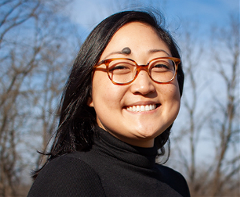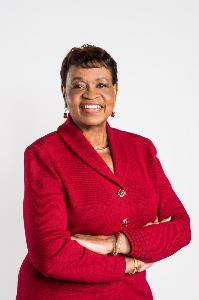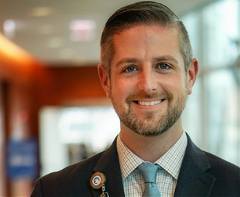Permission to Use Sigma Logo
If you are an Sigma member, go to
The Circle to download the chapter style guide and a JPEG file of the Sigma logo. If you would like a vector image of the logo or crest,
complete this form and your request will be reviewed as soon as possible.
If you are not an Sigma member and would like to request use of Sigma's official logo, contact
marketing@sigmanursing.org. In your email, provide detailed information regarding your intended use. Permission to use the logo or crest is granted on a case-by-case basis, and reasonable notice should be given. Approvals are for one-time use only.
UPDATE: Due to the current threat posed by the coronavirus (COVID-19), we regret to inform you that [per recommendations by the UN Secretary-General, UN Women and the World Health Organization (WHO)] the NGO Committee on the Status of Women, New York Executive Committee has cancelled all NGO CSW64 Forum events this year. The cancellation applies to all parallel events, including the two programs Sigma was scheduled to present: “Nursing: A Pathway to Empowerment” and “What Do We Teach Our Daughters? Nurses, Women, and Prosperity." For more information, please refer to the NGO CSW64 Forum Cancellation Notice.
INDIANAPOLIS – Sigma Theta Tau International Honor Society of Nursing (Sigma) will present the programs “Nursing: A Pathway to Empowerment” and “What Do We Teach Our Daughters? Nurses, Women, and Prosperity” parallel to the 64th session of the United Nations Commission on the Status of Women (CSW64). This will be the sixth consecutive year that Sigma has presented at CSW. Sigma invites all those who are interested to attend; these events are free and open to the public, and no registration is required.
“Nursing: A Pathway to Empowerment” — Co-sponsored by the International Council of Nurses (ICN)
Women comprise approximately 42% of the estimated global paid working population. In many countries, women comprise over 75% of the health workforce. (World Health Organization Spotlight on Statistics). Strengthening and focusing health systems around primary healthcare (PHC) is essential to achieving the Sustainable Development Goals (SDGS) and universal health coverage. This session explores how women can achieve economic empowerment through a nursing education and career and be leaders for social justice and equity.
DATE: Wednesday, 11 March 2020
TIME: 2:30-4:00 p.m. (1430-1600)
LOCATION: Auditorium of the Salvation Army International Social Justice Commission, 221 East 52nd Street, New York, NY, USA
“What Do We Teach Our Daughters? Nurses, Women, and Prosperity” – Presented in partnership with Jhpiego
Nurses, 90% of whom are women, and women in general, comprise the foundation of healthcare within many communities. They provide care and sustain communities through challenging and prosperous times. Their daughters often follow in their footsteps with knowledge learned from their mothers. Yet access to resources and information about resource management, crucial to economic empowerment/prosperity for women is frequently not provided or taught, generation to generation. To mobilize transformative leadership within communities based on gender equity we must ensure that women have access to resources, as well as the knowledge and tools critical to their effective management.
DATE: Thursday, 12 March 2020
TIME: 6:15-7:45 p.m. (1815-1945)
LOCATION: Auditorium of the Salvation Army International Social Justice Commission, 221 East 52nd Street, New York, NY, USA
PANELISTS:

Dawn Fitzgerald, MSN, RN earned her master’s degree in nursing from Columbia University, where she is currently pursuing her doctorate as a family nurse practitioner with a sub-specialty in women’s health. Dawn chose nursing as a second career after finding a passion for healthcare and witnessing the impact nurses can have on patient outcomes. Her first degree is in anthropology, which fueled her love of learning and experiencing different cultures and led her to travel extensively before she obtained her nursing license. Through her travels, Dawn became fascinated with healthcare and how vastly different it can look depending on the country you live in. Wanting to take an active role in the betterment of healthcare Dawn applied to and was accepted as one of two Sigma United Nations youth representatives. Dawn is currently serving in her second year as a United Nations youth representative.

Catherine Alicia Georges, EdD, RN, FAAN is a leader in academic nursing, health policy development, community engagement, organizational development and healthy aging. Her leadership in these areas is known nationally and internationally through her service as a member of health policy boards, health care delivery boards, professional organizations, governmental boards and the world’s largest consumer organization board of directors.

Aric M. Shimek, BSN, RN, CCRN, CPN is a second career nurse and a proud member of Sigma Theta Tau International’s Psi Lambda chapter in Chicago, IL, United States. Called to the nursing profession after the 2010 Haitian earthquake, Mr. Shimek blends business and nursing acumen to promote global health equity and advance the nursing voice in today’s healthcare challenges. His passion for health equity both at home and abroad has led Aric to serve in several leadership roles and he is honored to use these experiences to help grow Sigma’s presence at the United Nations.
To learn more about Sigma and its relationship with the UN, visit SigmaNursing.org/Global.
###
About Sigma
The Sigma Theta Tau International Honor Society of Nursing (Sigma) is a nonprofit organization whose mission is advancing world health and celebrating nursing excellence in scholarship, leadership, and service. Founded in 1922, Sigma has more than 135,000 active members in over 100 countries and territories. Members include practicing nurses, instructors, researchers, policymakers, entrepreneurs, and others. Sigma’s more than 540 chapters are located at more than 700 institutions of higher education throughout Armenia, Australia, Botswana, Brazil, Canada, Colombia, England, eSwatini, Ghana, Hong Kong, Ireland, Israel, Jamaica, Japan, Jordan, Kenya, Lebanon, Malawi, Mexico, the Netherlands, Nigeria, Pakistan, Philippines, Portugal, Puerto Rico, Scotland, Singapore, South Africa, South Korea, Sweden, Taiwan, Tanzania, Thailand, the United States, and Wales. Learn more at SigmaNursing.org.